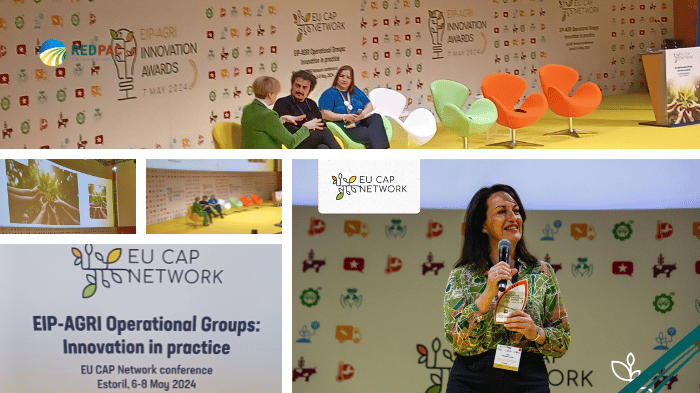
14 de May de 2024
Innovación
“European Task Forces: Innovation in Practice” is the name of the event organized by the EU CAP Network, which held its first conference in Estoril, Portugal.
- The conference "EIP-AGRI Operational Groups: Innovation in Practice" brings together more than 550 stakeholders from the European innovation ecosystem for two days in Estoril.
- The Spanish Operational Group "Subalma" receives the award for best project in the "Climate Change Mitigation and Adaptation" category within the "1st European Innovation Awards" 2024
The Portuguese town of Estoril hosted 550 stakeholders from the world of innovation in Europe on May 6, 7 and 8 as part of the first conference on "European Operational Groups: Innovation in Practice," organized by the European CAP Network . The conference served as a meeting point for creating a knowledge-sharing network among the various Operational Groups. (GG.OO.) that make up the innovative ecosystem at European level.
Thus, in addition to the presentations, workshops, and field visits hosted by this meeting, 85 Operational Groups gathered within an exhibition space that served as the nerve center of their activities. From their exhibition spaces, the Operational Groups presented their projects to the rest of the attendees and established contacts with stakeholders relevant to the research being conducted, which led to the development of a network of innovative stakeholders at the European level.
The conference also hosted the inaugural 2024 European Innovation Awards , created to recognize projects carried out by the more than 3,400 NGOs that have existed in Europe for the past eight years.
Prize for Spain
The European Innovation Awards consisted of six categories, each with five nominations selected by the jury. The winner in the "Climate Change Mitigation and Adaptation" category, dedicated to innovative projects related to efficient energy management and climate resilience, was the Spanish Operational Group Subalma .
This GO addresses water and fertilizer conservation in a climate-resilience context, as well as introducing new business opportunities for farmers beyond olive oil. The project establishes circular economy strategies for the reuse of olive mill byproducts as fertilizers using techniques that ensure maximum water efficiency.
The proposed technique focuses on the use of subsurface irrigation and the injection of nanobubbles into olive mill effluents, reducing the use of synthetic fertilizers in precision irrigation. This increases olive grove productivity, saves water, reduces labor, minimizes herbicide use, and increases fertilizer efficiency.
As explained to the PAC Network in Estoril, following the presentation of their results, the GO is seeking to launch a larger-scale project involving European-level cooperation on the use of olive by-products.
Objective: knowledge transfer
In the 2023-2027 CAP , GG projects are a key tool for innovation and knowledge sharing. By December 2023, more than 3,400 projects from these groups had been notified in the European Commission's database, and this number is expected to increase to approximately 6,600 by the end of 2025, according to the European CAP Network.
This means more knowledge to increase the productivity and sustainability of agriculture and forestry in the European Union, as well as more verified information to address the sector's current challenges. However, the greater the amount of knowledge, the more necessary it becomes to create a network and platform where this information is unified and easily shared within its ecosystem. This is the case with Farmbook , as well as the various AKIS platforms currently being implemented in all EU countries. The reason for this convention and its awards is to make all the information generated as accessible as possible.









